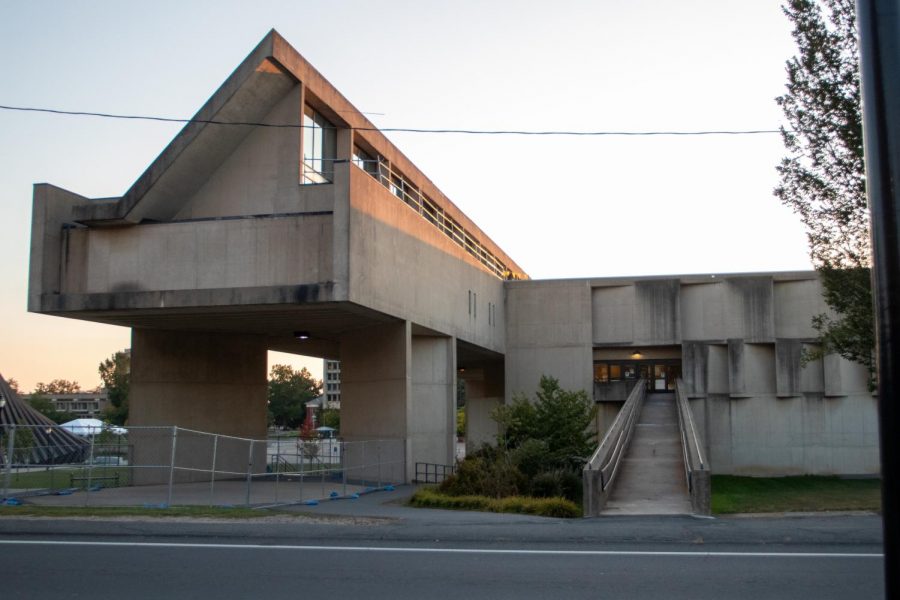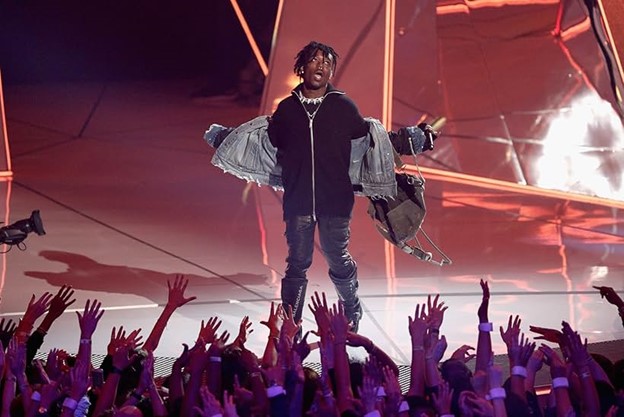“Everybody,” the most recent production by the University of Massachusetts Theater Department, explores the complexities of the afterlife in a comedic way, drawing inspiration from the philosophical musings of centuries past. The play ran for five shows in the Rand Theater in late October.
Wondering what happens after death has plagued humanity since the dawn of time, and the question is even more prevalent during a pandemic. Countless cultures have constructed elaborate mythologies to explain the mystery of death away and offer some semblance of reassurance, or guidelines by which to avoid an unpleasant eternal fate. It speaks to an innate human quality to seek answers and make sense of life and death.
The most recent source from which Branden Jacobs-Jenkins’ play draws inspiration is “Everyman,” a 15th century morality play that follows an ordinary man on his quest for salvation. It was based on an even earlier Dutch play, Elckerlijc, which was influenced by Buddhist concepts.
Like its predecessor, “Everyman,” “Everybody” follows the spiritual journey of one person meant to embody all of mankind. At the beginning of the play, Everybody, the titular character, is told by Death that they must give a presentation before God about how they lived their life and why. Intimidated by this obligation, they frantically search for someone or something to take with them for help.
As the plot unfolds, it is revealed that interpersonal relationships between people and their friends and family do not extend beyond the grave, as Everybody is unable to get Friendship or Kin to join them on their eternal journey. Similarly, the glittering, humorously narcissistic Stuff, the embodiment of one’s possessions, cannot accompany Everybody to the afterlife. Strength, Beauty, Mind and Understanding will eventually leave us too, no matter how desperately we try to cling to them. At last, it is concluded the only things Everybody can bring to the grave are Love and Evil Deeds, the manifestation of all of their wrongdoings incarnate.
One fascinating way the cast explored the unexpectedness of death was through the randomization of casting for the character of Everybody through a lottery system, meaning several actors learned the part and were prepared to perform at any given show.
“Speaking from the point of view of being in the cast, the unpredictability of the show night to night resonates most with the themes of death and grief — you don’t know in advance who Everybody is going to be, so as an actor, you need to stay in the moment and be ready for anything as the show progresses,” said Masters of Fine Arts theater student Percival Hornak, who played Love.
“Everybody” was both emotionally deep and comedic. It was, at once, entertaining and a sobering meditation on the triviality of what we think is important.
“Death, as an inevitable ending and never knowing where or when it will find us, is a constant, and art is a wonderful way to explore the inevitable. I think this play exemplifies that most of us aren’t just afraid of death, we are afraid of the unknown,” said Maryellen Tisdell, the junior theater major who played Evil Deeds.
“Everybody” is a testament to the power of the theater. Only this unique artform can make us laugh, evoke such strong emotions and remind us of what really matters.
Grace Smith can be reached at [email protected].



















